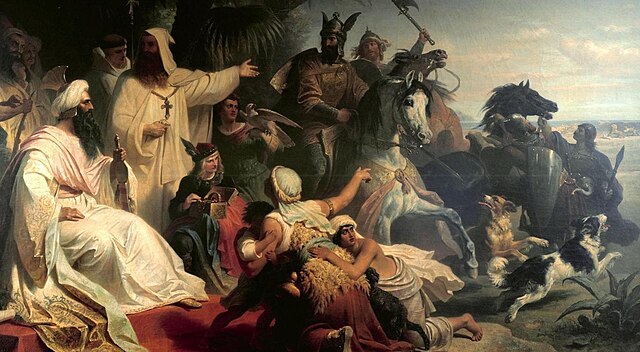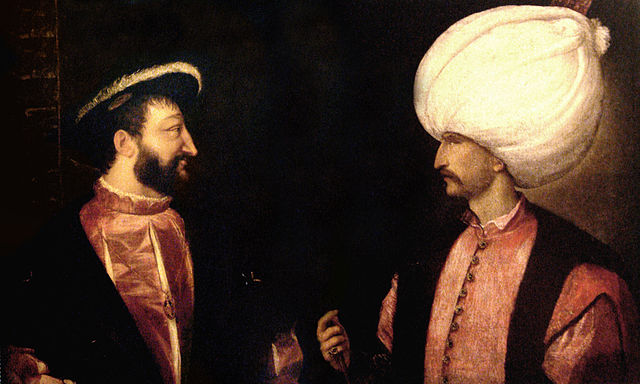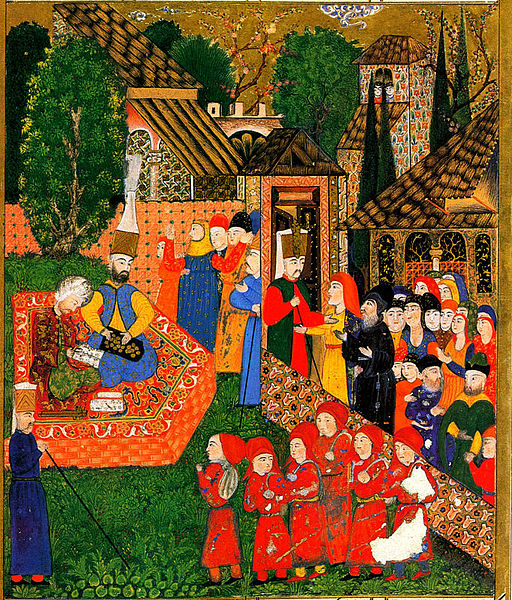Protectorate of missions is a term for the right of protection exercised by a Christian power in a Muslim or other non-Christian country with regard to the persons and establishments of the missionaries. The term does not apply to all protection of missions, but only to that permanently exercised in virtue of an acquired right, usually established by a treaty or convention, voluntarily consented to or accepted by the non-Christian power after more or less compulsion. The object of the protectorate may be more or less extensive, as it may embrace only the missionaries who are subjects of the protecting power or apply to the missionaries of all nations or even to the native Christians who are their recent converts.
Harun al-Rashid at left receiving a delegation sent by Charlemagne to his court in Baghdad. 1864 painting by Julius Köckert.
Francis I (left) and Suleiman the Magnificent (right) initiated a Franco-Ottoman alliance. Both were separately painted by Titian c. 1530.
Jesuit astronomers with Kangxi Emperor
Christianity in the Ottoman Empire
Under the Ottoman Empire's millet system, Christians and Jews were considered dhimmi under Ottoman law in exchange for loyalty to the state and payment of the jizya tax.
Christian liturgical procession from the Ottoman Empire, depicted by Lambert de Vos in 1574
Ottoman official registering Christian boys for the devşirme. Ottoman miniature painting from the Süleymanname, 1558
Mehmed the Conqueror receives Gennadius II Scholarius (Ecumenical Patriarch of Constantinople from 1454 to 1464)
Ottoman Greeks in Constantinople, painted by Luigi Mayer






